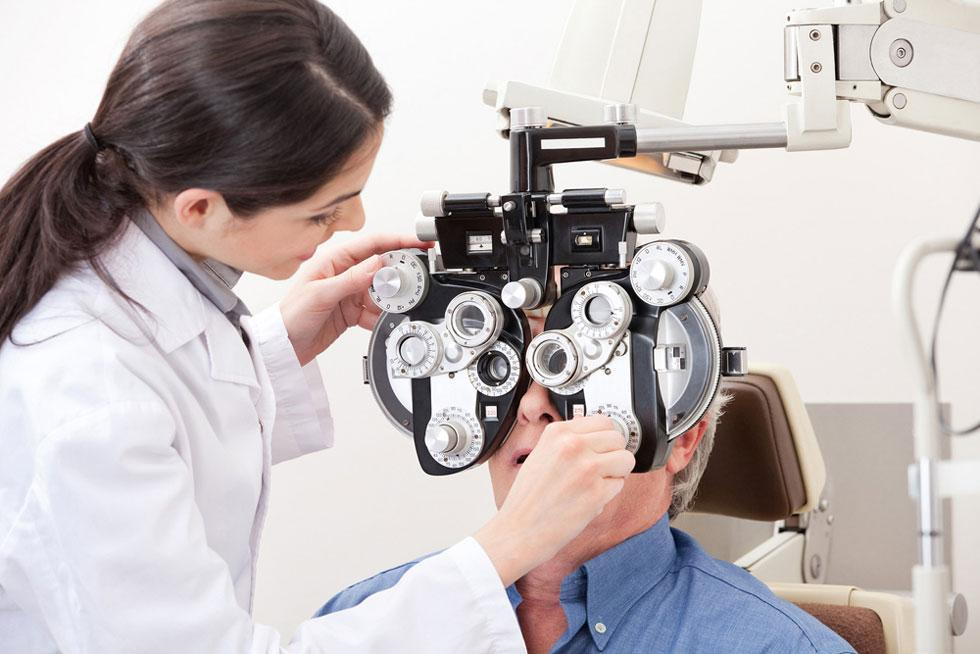Featured

Managing persistent eye conditions can be a challenging journey, yet with the right strategy, patients can maintain a high quality of life and protect their vision. Persistent eye problems such as glaucoma, macular degeneration, diabetic person retinopathy, and completely dry eye illness frequently require long-lasting management and regular care. The trick to efficiently handling these problems depends on a combination of specialist care, lifestyle adjustments, and regular surveillance.
- Routine Eye Examinations
Routine eye tests with an eye doctor or ophthalmologist are essential for checking the development of chronic eye conditions. Early discovery of adjustments can help take care of and prevent additional vision loss. Problems like glaucoma can be taken care of effectively if caught early, as therapy can slow down its progression. People must abide by the timetable recommended by their eye care experts, as regular examinations can help catch any kind of difficulties prior to they aggravate.
- Following Prescribed Therapies
Numerous chronic eye conditions are workable with medication, way of life modifications, or a mix of both. Eye declines are typically recommended to deal with glaucoma, while anti-VEGF injections may be recommended for macular degeneration.
- Diet Plan and Nourishment
Correct nutrition plays an important function in preserving eye health. Consulting with a nutritional expert can assist clients customize their diet regimen to support eye health while taking care of various other elements of their problem, such as blood sugar degrees for diabetic people.
- Protecting the Eyes

Patients handling chronic eye conditions should take actions to secure their eyes from further pressure or damage. Putting on sunglasses that obstruct UV rays can assist shield the eyes from damaging sunlight, which can worsen problems like cataracts or macular deterioration. Additionally, staying clear of smoking cigarettes is important, as it can raise the risk of numerous eye illness, including macular degeneration.
- Keeping An Eye On Signs at Home
Keeping an eye on signs and symptoms is an additional important element of managing chronic eye conditions. Individuals should know any type of modifications in their vision, such as blurriness, abrupt vision loss, or raised level of sensitivity to light, and report these adjustments to their physician. Using devices like an eye chart at home or monitoring aesthetic disruptions can aid clients remain aggressive in their care.
- Support and Education
Living with a persistent eye condition can be mentally and mentally straining. Expertise is power, and the more people know concerning their problem, the much better outfitted they are to handle it properly.
Finally, taking care of persistent eye conditions includes a holistic method that includes regular eye examinations, adherence to prescribed therapies, preserving a healthy diet regimen, and shielding the eyes from additional damages. With the ideal care and support, individuals can efficiently manage their eye health and maintain their vision for many years ahead.
Reliable Strategies for Managing Persistent Eye Conditions: A Person's Guide

Chronic eye conditions such as glaucoma, cataracts, macular degeneration, and diabetic retinopathy can considerably impact an individual's quality of life. However, with an aggressive method and the ideal sources, people can organize their eye health and avoid additional complications. This overview supplies functional methods for efficiently handling persistent eye problems.
- Early Diagnosis and Consistent Monitoring
One of the most vital actions in managing a chronic eye problem is very early diagnosis. By catching eye conditions in the early stages, patients have a higher possibility of slowing down their progression.
- Drug Monitoring
Several persistent eye problems can be regulated or stabilized through the use of prescription drugs. Eye goes down for glaucoma, for instance, assistance reduce intraocular stress and protect against optic nerve damages.
- Way Of Living Changes
A healthy way of living is vital for handling chronic eye problems. Routine workout, a well-balanced diet plan, and adequate sleep add to general health and can have a favorable impact on eye health and wellness. People with diabetes mellitus ought to focus on keeping steady blood sugar degrees to prevent diabetic person retinopathy. In addition, integrating nutrient-rich foods such as leafy greens, fish, and citrus fruits into the diet plan can give the needed minerals and vitamins to sustain healthy and balanced vision. Preventing smoking cigarettes and extreme alcohol intake can additionally lower the threat of aggravating conditions like macular deterioration.
- Shielding the Eyes from External Variables
Environmental variables such as sunshine, dirt, and wind can intensify signs and symptoms of certain eye problems. Using safety sunglasses with UV filters can secure the eyes from damaging rays that add to cataracts or macular degeneration. In addition, using man-made splits or lubricating eye declines can help manage the signs of completely dry eye condition, which is typical amongst people with chronic eye problems.
- Emotional and Mental Health Support
Coping with a chronic condition can be stressful, and taking care of changes in vision can bring about sensations of stress or depression. Looking for emotional assistance from good friends, family, or perhaps sustain teams is an integral part of taking care of chronic eye problems. Numerous patients also locate it handy to chat with therapists or psychological health experts to establish coping strategies for taking care of the emotional influence of their problem.
- Making Use Of Innovation
Advancements in technology have actually supplied countless devices to aid clients handle persistent eye conditions. Applications that track vision changes, assistive gadgets for reading or wheelchair, and reduced vision help can all boost every day life. As an example, text-to-speech devices and electronic magnifiers are beneficial for clients with macular degeneration. By embracing offered technologies, individuals can keep freedom and ease everyday tasks.
In summary, handling persistent eye problems includes a mix of very early discovery, reliable treatment, way of life adjustments, and emotional support. By remaining vigilant regarding eye health and making thoughtful decisions, clients can remain to enjoy life with very little interruption from their condition. Normal communication with health care suppliers and a dedication to self-care are the foundation of effective monitoring.
Latest Posts
Uncover Montclare Auto Repair’s Premier Services and Why Drivers Trust Them
Published May 27, 25
1 min read
Boost Your Home's Exterior with Weathercraft's Siding Solutions
Published May 23, 25
1 min read
Shield Your Home with Quality Residential Roofing
Published May 23, 25
1 min read
More
Latest Posts
Uncover Montclare Auto Repair’s Premier Services and Why Drivers Trust Them
Published May 27, 25
1 min read
Boost Your Home's Exterior with Weathercraft's Siding Solutions
Published May 23, 25
1 min read
Shield Your Home with Quality Residential Roofing
Published May 23, 25
1 min read